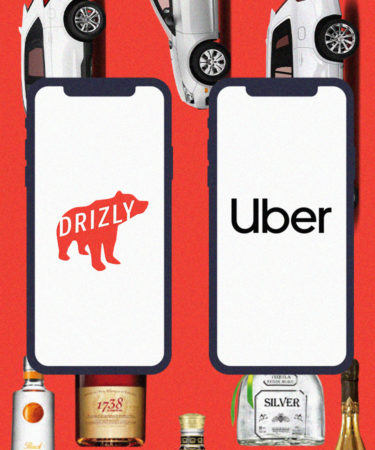On Tuesday, Uber announced it will acquire Drizly, the leading on-demand alcohol delivery service in the U.S., for $1.1 billion.
At this point, Uber is the world’s largest food delivery and ridesharing platform, though it’s not clear how this plan will affect drivers. A press release on Uber’s Investor relations site hints that “delivery drivers will have even more ways to earn,” with Drizly currently available in 1,400 cities.
Due to the legal complexities of alcohol delivery, Drizly does not employ gig drivers. Instead, it pairs with thousands of local merchants who fulfill orders placed on the platform. This model operates in contrast to that of rideshare apps. Last November, controversy arose when apps such as Uber used Proposition 22 to circumvent typical benefits for employees like health care and an hourly minimum wage. This acquisition may rekindle discussions around gig employee compensation, but for now, marks a major step for both brands involved.
Drizly merchants will benefit from the deal by gaining access to Uber’s routing technology, consumer base, and mobile marketplace, according to Uber. Drizly’s marketplace will also be integrated into the Uber Eats app, though a separate Drizly app will remain.
The plan follows Uber’s attempt to acquire GrubHub last year, and the successful acquisition of Postmates last July. Uber CEO Dara Khosrowshai confirmed this by explaining that the team has been “branching into new categories like groceries, prescriptions and, now, alcohol.”
Over the last eight years, Drizly has grown its platform tremendously. Recently, it reported that gross bookings grew more than 300 percent last year, driven by Covid stay at home orders.
Uber plans to pay more than 90 percent of the $1.1 billion headline figure to Drizly stockholders in shares of Uber common stock, and the remaining balance in cash. On the morning the deal was announced, Uber shares were up around 7 percent.
Another competitor, Minibar was founded two years after Drizly. At this point, Minibar is the major remaining alcohol delivery service, but to date has raised around $6 million in capital compared to Drizly’s approximately $120 million in funding. That being said, the platform may become a target for a rival delivery platform, presenting strong competition for Uber-Drizly.
